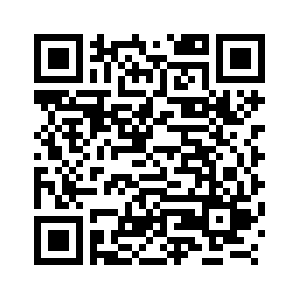Roundup: Gazans reject U.S.-Israeli aid distribution plan, call for enhanced UN role
Source: Xinhua
Editor: huaxia
2025-05-11 00:34:30
GAZA, May 10 (Xinhua) -- A joint U.S.-Israeli initiative to distribute humanitarian aid in the Gaza Strip has triggered strong backlash from Gazans, who say the plan undermines their dignity and sidelines established international relief channels.
Palestinians displaced by months of conflict voiced deep mistrust of the effort, accusing Washington and Tel Aviv of politicizing aid delivery amid a worsening humanitarian crisis.
"Since we were forced to flee south at the start of the war, we've endured hunger, deprivation, and fear," said Mohammed al-Ajrami, a displaced resident of Gaza City. "People here have little trust in any initiative involving the same actors they hold responsible for their suffering."
"What we want is aid that preserves our dignity," he told Xinhua. "International institutions like the United Nations have treated us with humanity. We don't want conditional aid tied to political or military oversight."
Similar sentiments were echoed by Salah al-Ja'farawi, also from Gaza City. "After 18 years of blockade and over 19 months of war, people will not accept aid that comes at the expense of their dignity," he said. "Emergency help is one thing, but if the long-term plan is to erode our rights, it will not be accepted."
The aid plan, announced this week by U.S. Ambassador to Israel Mike Huckabee, aims to provide food to roughly 1.2 million people -- about 60 percent of Gaza's population -- through four distribution centers inside the enclave. The operation will be managed by a newly established private entity, the Gaza Humanitarian Foundation, and secured by U.S. contractors, with the Israeli military guarding the perimeter.
Speaking at a briefing in Jerusalem on Friday, Huckabee said the objective was to prevent Hamas from diverting aid, reiterating longstanding Israeli claims that the group exploits humanitarian supplies.
But in Gaza, many view the plan as an extension of foreign control. Rami al-Najjar, a local humanitarian worker, said aid should be delivered through neutral channels.
"People trust international organizations to distribute aid professionally, without political agendas," he said. "Introducing military actors into this process sends the wrong message."
The United Nations and other humanitarian agencies have repeatedly warned against politicizing aid and confirmed that, under existing mechanisms, most supplies have reached civilians despite logistical challenges.
The situation in Gaza has sharply deteriorated in recent months. In March, Israel tightened its blockade, restricting shipments of food, medicine, and fuel. Aid agencies report worsening food insecurity, with rising malnutrition rates, particularly among women and children.
Hussam al-Dajani, a Gaza-based political analyst, said the joint U.S.-Israeli plan appears driven by strategic considerations rather than humanitarian ones.
"This initiative seems less about saving lives and more about reducing Hamas's influence," he said. "Locally, it's viewed not as a humanitarian lifeline but as a new form of control."
He warned that using private contractors and foreign armies in aid delivery risks further alienating the population.
"Palestinians see this as an attempt to manufacture dependency and enforce compliance. Aid should not be a tool of coercion," he said.
Dajani urged the United Nations to take the lead. "The UN has the mandate and the trust to deliver impartial relief. People here are calling for an international response free from political interference." ■



